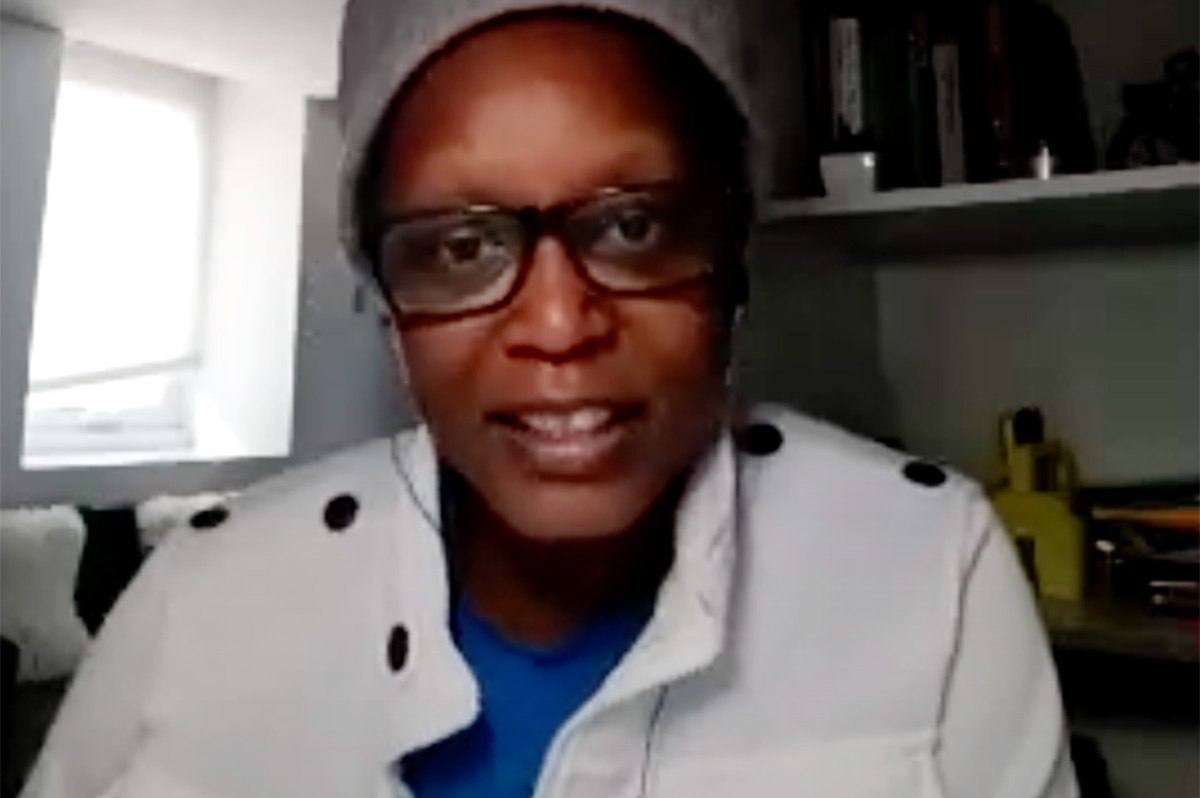Opinions
Fox News doesn’t respect its viewers
Performative stupidity continues as GOP actors play to their audience


There’s a Jon Stewart-era “Daily Show” clip in which the erstwhile host pokes fun at the feigned idiocy of Fox News’s Gretchen Carlson, who later left the network and won a sexual harassment settlement. Although Carlson graduated from Stanford University with honors, she played the dumb blonde every morning on Fox & Friends. Among other incredulous moments, Carlson would often claim she needed Google or a dictionary to look up words she most certainly knew, such as ignoramus and czar. As Stewart quipped, Carlson was probably “dumbing [herself] down to connect with an audience [she thinks] sees intellect as an elitist flaw.”
Carlson’s performative stupidity continues to be the norm for many Fox anchors (for others, like Sean Hannity, it might not be an act), which illustrates less that Fox News’s audience is dumb per se (no argument here) but that the on-air personalities and producers think their audience is dumb. In other words, Fox News doesn’t respect its viewers.
The Trump Republican Party behaves the same way. After Sen. Josh Hawley (R-MO) announced he’d object to Joe Biden’s Electoral College certification, Sen. Ted Cruz (R-Texas) had to one-up Hawley by bragging that he had corralled several senators to object alongside him. These guys are not stupid. Both Cruz and Hawley are products of elite education. Like Carlson, Hawley is a Stanford grad who went onto Yale Law School. Cruz is an alumnus of Princeton and Harvard Law.
They both know that Biden won. They both know that their stunt had zero chance of success. It was all grandstanding in the hopes of endearing themselves to Trumpists and perhaps securing an endorsement from Trump later on. So Hawley gave a fist salute to Trump’s supporters just hours before they stormed the Capitol, and Cruz spoke in his usual oily way about his solemn duty to obstruct a free and fair election.
Both these guys were offering false hope to Trump’s most militant and delusional partisans who had no idea, or at least no inclination to acknowledge, that Congress cannot unilaterally pick the president. But Hawley and Cruz made their judgment that debased appeals to the ignorance of Republican hooligans would serve their long-term political interests. There is contempt here for their voters. The unwillingness to level with people conveys disrespect for their intellect as if they were children who must be humored or indulged.
The same phenomenon remains on display with COVID-19. Republicans are in a race to the bottom to sound the most anti-science, the most hostile to public health officials, the most vulgar in childish name games (“Kung Flu”), and the most all-around militant in their opposition to mask-wearing and social distancing.
This pandering to the lowest-common dominator has consequences. The ongoing death toll from COVID needs no further elaboration. And while Hawley and Cruz did not want the fascistic riot, they were damaging the country by undermining faith in our elections and institutions and stoking malignant conspiracy theories.
Even in the aftermath of the uniquely American-white-nationalist maelstrom, Cruz and Hawley were not contrite. They returned to their seats and voted to oppose the certification of Biden’s election in two states. The next morning, they commenced Act II. Cruz attacked liberal champion and right-wing bête noire Rep. Alexandria Ocasio-Cortez. And Hawley whined that a “woke mob” was infringing on his First Amendment rights after a publisher canceled his book deal in protest over his seditious conduct. These types of feuds — right-wing performative outrage at alleged victimization by woke liberals — play well with the resentful ideologues that power the Republican Party.
And so sadly we will continue to see more of the Republicans’ dumbed-down pandering. Sen. Mitt Romney (R-Utah), a rare voice of party sanity, consoled his colleagues on the night of the riot: “The best way we can show respect for the voters who are upset is by telling them the truth.” Several Republican senators and more than half of the GOP’s House caucus still voted to block Biden’s victory.
If you respect your constituents, you tell them the hard truth. Most Republicans, however, evidence no respect for their constituents. But, frankly, most of their constituents have given them little to respect. Republican politicians play dumb because it works.
Khelil Bouarrouj is an activist who writes about LGBTQ issues.
Opinions
Science must not be a weapon against trans people
HHS directive would fund studies on ‘detransition’ among children

A concerning research directive is quietly circulating through the U.S. Department of Health and Human Services. The directive, issued in response to presidential Executive Order 14187, calls for the National Institutes of Health to fund studies focused on “regret” and “detransition” among children who have accessed gender-affirming care. It explicitly demands that researchers avoid “subsidizing or incentivizing” such care – language that is both vague and deeply ideological.
President Trump’s executive order, titled “Protecting Children from Chemical and Surgical Mutilation,” was signed in January 2025 and frames all gender-affirming care for minors as inherently dangerous. It calls for an investigation into the “long-term side effects” of such care and restricts federal funding to any institution providing it. In effect, it lays the groundwork for a federally sanctioned research agenda that aims not to understand transgender health but to discredit it.
Behind the recent HHS memo lies a dangerous truth: The federal government is attempting to repurpose science as a tool for political ideology. If this directive proceeds, it will not only erode the credibility of public health research, but it will also put transgender lives at risk.
This warning is not hyperbole. The memo uses inflammatory language like “chemical and surgical mutilation” to describe standard gender-affirming treatments such as hormone therapy and surgery. These terms are not neutral. They are the rhetorical weapons of anti-trans movements, now embedded in federal policy language. Their use signals a chilling shift: science is no longer being asked to explore, understand, or improve lives. It is being asked to justify harm.
Let’s be clear: Regret following gender-affirming care is exceedingly rare. Evidence suggests that the regret rate among individuals who have had gender-affirming surgery is less than 1%, compared to a surgical regret prevalence of about 14% among the general population. Moreover, studies have found that when transgender people report regret following gender-affirming surgery, it is often related to external factors like lack of support from family and peers.
The evidence is consistent and overwhelming: gender-affirming care, including gender-affirming surgery, improves mental health, reduces suicidality, decreases substance use, and affirms a person’s identity and autonomy. That’s why the American Medical Association, the American Academy of Pediatrics, the American Psychiatric Association, and every major medical organization in the United States recognize the safety, efficacy, and medical necessity of gender-affirming care when provided in accordance with established guidelines.
And yet, this new directive demands the opposite. It explicitly instructs researchers to avoid using methods that “subsidize” or “incentivize” transition – a vague prohibition that could limit recruitment, constrain study design, and exclude institutions that provide care. It also bars federal funding to any site offering gender-affirming care to minors, ensuring that the very institutions with the clinical expertise and trust of transgender communities are excluded from the research altogether.
This is not how science works. It is how propaganda works.
There is no scientific integrity in a process that defines its conclusions in advance. There is no public benefit in research that singles out one of the most vulnerable populations – transgender youth – as the sole subject of scrutiny while erasing their overwhelmingly positive outcomes. There is no ethical justification for using federal funds to stigmatize identities and restrict medical freedom.
All aspects of transgender health – positive, negative, and complex – deserve rigorous scientific study. That is what good research does. It seeks truth through comprehensive, community-engaged inquiry. But this directive does not aim for understanding; it fixates exclusively on harm. By selectively funding studies on regret and detransition and explicitly discouraging research that might affirm or support transition, it transforms science from a tool of discovery into an instrument of ideological control.
The consequences of this directive are real. It will erode trust in health research, particularly among transgender people who already face systemic discrimination in medicine. It will chill academic inquiry, pushing researchers away from transgender health for fear of political reprisal. And it will feed a wave of state-level legislation banning gender-affirming care – legislation that increasingly cites distorted or misrepresented science as justification.
This directive is not just an attack on trans rights. It is an attack on science itself.
We must respond with urgency.
First, institutions that receive NIH funding must speak out. Silence enables political interference to become normalized. Deans, department chairs, and ethics boards must draw a clear line: public health research cannot be allowed to serve discriminatory ends.
Second, scientific societies and journals must reaffirm their commitment to ethical, community-engaged, and evidence-based research on transgender health. This means actively promoting rigorous work that reflects the full complexity of transgender people’s lives. Not just those experiences that fit a political narrative.
Third, Congress must exercise its oversight powers. Lawmakers should demand transparency around how and why this directive was issued and ensure that federally funded research respects both scientific standards and human rights.
And finally, the research community must organize. Transgender health researchers, bioethicists, and community partners need to work together to defend the autonomy of science and the dignity of research participants. This is not a moment for neutrality. It is a moment for moral clarity.
We are living through a time when transgender people are being targeted by laws, banned from public life, and erased from textbooks. Now, the very tools of science are being turned against them. If we don’t stop this weaponization now, the damage won’t just fall on transgender communities; it will fall on all of us who believe in evidence, equity, and truth.
Harry Barbee, Ph.D., is an assistant professor at the Johns Hopkins Bloomberg School of Public Health. Their work focuses on LGBTQ+ health equity and public policy.
Opinions
D.C. leaders must show up for LGBTQ+ communities
Silence is not an option amid relentless attacks

At a time when D.C. and the LGBTQ+ community are under relentless attack, we cannot afford silence — or inaction. The DC LGBTQ+ Budget Coalition, a grassroots alliance of more than 20 LGBTQ-led and LGBTQ-serving organizations and individuals, is calling on Mayor Bowser, the D.C. Council, and every level of D.C. government to act with urgency and purpose in this year’s budget process to invest in our community. Our lives, our futures, and our rights are on the line — not just nationally, but here at home in the District. How D.C. as a city responds in the face of hate sends a powerful message to the rest of the country.
We formed this coalition because LGBTQ+ people in the District — especially Black, Brown, trans, disabled, and low-income residents — deserve more than token inclusion. We deserve policies, investments, and leadership that center our lived realities and deliver on equity. While Congress tries to strip D.C. of home rule and holds our budget hostage, our local government has the power — and responsibility — to lead.
We are not a performative alliance. We are a community-driven movement. From housing to healthcare to workforce development, we believe budgets are moral documents — and D.C.’s budget must reflect the values of equity, justice, and liberation.
National Context Demands Local Action
Just this year, members of Congress introduced damaging legislation to reverse D.C.’s home rule, stripping District residents of the fundamental rights of self-governance enjoyed by their own constituents. Additionally, the White House seeks to rule over us by executive order, issuing edicts to overturn our laws. Adding further insult to injury, extremists in the House of Representatives are holding $1.1 billion of D.C.’s own tax revenue hostage to their radical anti-democratic agenda.
Moreover, this administration continues its assault on diversity, equity, and inclusion initiatives, undermining civil rights protections across the country. We are not simply witnessing bureaucratic shifts; we are standing at the edge of a cliff, staring down a coordinated rollback of the very protections our communities have bled to secure.
Veterans of past queer liberation fights remind us that we’ve been here before. From the Lavender Scare to Stonewall to ACT UP, from the fight for marriage equality to the ongoing battle for trans rights, queer warriors have long known what it means to survive government neglect, societal backlash, and moral panic. Their testimonies warn us: This moment is severe. This moment is familiar. And this moment requires us to act.
These are not theoretical attacks. They are strategic, structural, and escalating. In this context, D.C. must serve as a model for sanctuary, resilience, and resistance. That means investing in communities — not abandoning them.
We know that our local leadership has, at times, moved preemptively to comply with federal executive orders — even when those directives run counter to our values. And while the mayor has publicly affirmed equity, housing, and inclusivity as core priorities, this moment demands more than words. We call on the mayor and District leaders to stand firm in those stated commitments and meet this moment with the clarity in the District’s budget. D.C. must not be a conduit for federal overreach, but a bulwark against it.
Our FY26 Priorities
In this year’s budget, we’re calling for the D.C. government to protect targeted investments in:
• Public Health: Restore and expand local funding to fill the dangerous gaps left by federal cuts to HIV prevention and mental health services. Ensure culturally competent care for LGBTQ+ residents, especially those with disabilities and chronic health conditions.
• Employment and Economic Equity: Sustain and grow workforce development programs for trans and gender-diverse (TGD) residents. Expand partnerships with employers and support entrepreneurial training by and for the TGD community.
• Housing: Invest in long-term housing solutions, including for LGBTQ+ youth and seniors, and protect programs like Emergency Rental Assistance Program (ERAP) and Tenant Opportunity to Purchase Act (TOPA) that keep people residents housed.
• Safety and Community Support: Fund LGBTQ+ survivor shelters and IPV/SA services, ensure disability and language access, and streamline government grant processes for community-based organizations.
We’ve outlined these and other priorities in our full FY26 Budget and Policy Platform, recently delivered to the Mayor and D.C. Council. But we know that a letter alone isn’t enough—we must take action.
We’re Organizing — and We’re Not Alone
In this past week, we launched a letter-writing campaign to mobilize D.C. residents to urge their Council members to prioritize LGBTQ+ budget needs. We are also releasing a citywide sign-on letter for partner coalitions and ally organizations to demand the same.
Our members are showing up at budget hearings, meeting with agencies, and organizing communities across all eight wards. And while we’re proud of the momentum, we need our community to join us. We need every resident, organization, and elected leader to get in this fight.
How You Can Get Involved
Here’s how you can join the movement:
• Individuals: Sign our Action Network letter to Council members and the Mayor.
• Testify or submit written testimony at budget hearings to uplift our priorities.
• Call and email your Council members — demand full inclusion of LGBTQ+ needs in the FY26 budget.
Together, we can ensure that D.C.’s budget reflects the lived realities and urgent needs of LGBTQ+ communities across all eight wards.
The question before D.C.’s leaders is clear: Will you choose to look the other way or will you join us in taking action?
Heidi Ellis is coordinator of the DC LGBTQ+ Budget Coalition. Erin Whelan is executive director of SMYAL (coalition member).
Opinions
LGBTQ elder voices matter now more than ever
Global Story Archive highlights often ignored perspectives

Kasha Nabagesera is widely regarded as the Mother of the Ugandan LGBTQ+ human rights movement. As one of the most prominent human rights activists of our time, she is no stranger to speaking publicly about her life. However, when I had the privilege of sitting down with her this February, she opened up about a part of her story that is often overlooked—or, even worse, ridiculed. Aging.
When Kasha turned 40, she began to notice a shift in how people viewed and spoke about her lived experience. In the years since, she has received hurtful and dismissive messages from younger LGBTQ+ people who believe her age renders her opinions and perspective irrelevant. These individuals fail to recognize that the sacrifices made by Kasha and other elders have paved the way for today’s young queer people to live their lives openly and proudly.
Disregard for LGBTQ+ elders is not just disrespectful—it’s a missed opportunity for connection at a time when solidarity among LGBTQ+ people is desperately needed. The number of anti-LGBTQ+ bills continues to rise in state legislatures across the U.S., and about one-third of the world’s countries, including 60 UN member states, still criminalize consensual same-sex sexual acts.
The reality is that our elders are true pioneers of the LGBTQ+ movement worldwide. They have survived decades of discrimination and state-sanctioned violence, leading them to face many unique challenges.
Many report having to “go back into the closet” to access care in later years, lack family support networks, and discrimination in housing and healthcare. LGBTQ+ older adults are also less likely to have retirement savings due to decades of employment discrimination.
Through these struggles, LGBTQ+ elders have developed remarkable wisdom, and their lived experiences can provide a roadmap for resilience in the face of new obstacles. But too often, we fail to listen to them, and their contributors are forgotten.
Over the last three and a half years as director of International Programs at SAGE, I have spoken with hundreds of elders worldwide about their lives and legacies. Most have shared similar experiences of ageism and a desire to pass on their knowledge to younger generations.
One of those elders is Reingard Wagnar, a 74-year-old lesbian and activist from Germany. She said that not only are older women in society rendered invisible anyway, but it is especially true for older lesbians. She wants people to know that elder LGBTQ+ folks are here, and they have much to share.
Another elder I had the honor of meeting, Kevin Mchawiro, is a Kenyan journalist and believes stories can also serve as a source of inspiration and that love does indeed win.
To collect, preserve, share and amplify the stories of elders like Kasha, Reingard, and Kevin, I created The Global Story Archive. Supported by SAGE and in collaboration with a global network of not-for-profit organizations and independent activists, this first-of-its-kind collection features the voices of dozens of LGBTQ+ elders who are eager to share their perspectives across generations and borders.
However, in the wake of Trump’s Executive Orders on Foreign Aid, the uncertainty of where funding and support lies, and what the future looks like, SAGE must close its global operations. This suspension is happening in tandem with the dismantling of foreign aid programs that advance the well-being of other underserved populations, including immigrants, women, and those burdened by disease.
The loss extends beyond funding cuts or policy shifts; it represents the erosion of programs that have fostered solidarity and advanced the well-being of us all.
If you find yourself asking how to find resilience in this turmoil, the answer is simple: look to our elders. Our international community of LGBTQ+ elders has lived through and witnessed moments of upheaval, tragedy, and triumph, and they hold priceless knowledge to counsel younger generations through hardship.
The state of the world is uncertain, but as elders will tell you, it can get better.
To hear and learn from the voices of our global community of LGBTQ+ elders, please visit The Global Story Archive.
Hannah Yore is an international health and human rights advocate with expertise in aging, care work, and LGBTIQ human rights. She is the former director of International Programs at SAGE and is a dedicated palliative care and end-of-life doula.
-

 Opinions5 days ago
Opinions5 days agoIt’s time for new leadership on the Maryland LGBTQIA+ Commission
-

 The White House5 days ago
The White House5 days agoWhite House does not ‘respond’ to reporters’ requests with pronouns included
-

 Arts & Entertainment5 days ago
Arts & Entertainment5 days ago‘Gay is Good’ Pride Pils Can Celebrates Frank Kameny’s 100th Birthday for WorldPride in D.C.
-

 Sponsored5 days ago
Sponsored5 days agoTHC Drinks: What You Should Know About Cannabis Beverages












